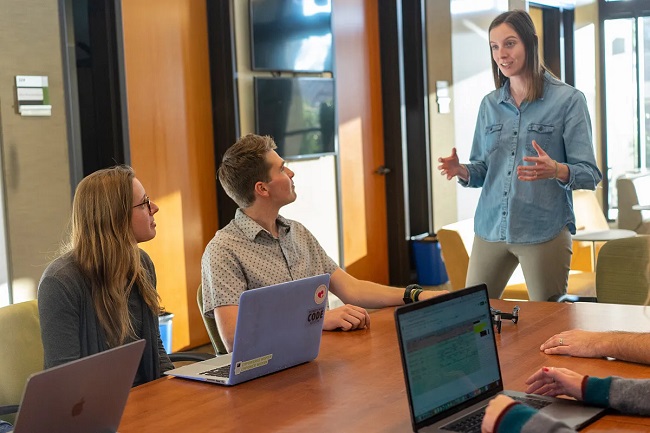In the dynamic world of the entertainment industry, where creativity knows no bounds, video content serves as a powerful medium for storytelling and engaging audiences.
However, for content creators looking to expand their reach and captivate international viewers, translating video content becomes paramount.
One common scenario is the need to translate German video to English, allowing for wider accessibility and global appeal.
In this article, we will explore the significant role of video translation in the Entertainment industry and delve into the intricacies of translating video to English.

The Global Impact of Video Translation in Entertainment
The entertainment industry is no longer confined to local audiences. With the advent of digital platforms and online streaming services, content creators now have the opportunity to reach global viewership.
Read Also:
However, language barriers pose a significant challenge in effectively connecting with diverse audiences worldwide. This is where video translation plays a crucial role.
By translating German video content to English, content creators can unlock a broader audience base, expand their global reach, and enhance the overall viewing experience.
Translating Video to English: Challenges and Considerations
Translating German video to English requires careful attention to linguistic and cultural nuances to ensure an accurate and engaging adaptation. Here are some key challenges and considerations in the translation process:
- Linguistic Accuracy. A primary goal of video translation is to convey the original meaning of the content accurately. Translators proficient in both German and English must accurately translate dialogue, capturing the essence of the original script while considering linguistic differences and idiomatic expressions.
- Cultural Adaptation. Effective video translation goes beyond linguistic conversion. It involves cultural adaptation to resonate with English-speaking viewers. Translators must consider cultural references, humor, and social norms to ensure an authentic and relatable experience for the target audience.
- Subtitling vs. Dubbing. When translating German video to English, content creators must decide between subtitling or dubbing. Subtitling involves adding translated text at the bottom of the screen, allowing viewers to read while listening to the original audio. Dubbing, on the other hand, replaces the original German audio with professionally recorded English voiceovers. The choice depends on factors such as budget, target audience preferences, and the nature of the content.
- Voice Talent Selection. In the case of dubbing, selecting suitable voice actors is essential. The voices should match the tone, emotion, and character of the original German content while resonating with the English-speaking audience. Professional voice actors with linguistic fluency and acting skills can effectively bring the characters to life in the translated version.

The Impact of Video Translation on Global Audience Engagement
Video translation in the entertainment industry has a profound impact on global audience engagement. Here are some key ways in which it contributes to the industry’s success:
- Cultural Exchange. Translating German video content to English fosters cultural exchange by introducing international viewers to German storytelling, traditions, and perspectives. It promotes understanding, appreciation, and curiosity for different cultures.
- Market Expansion. By translating video content, entertainment companies can tap into English-speaking markets worldwide, broadening their potential audience and revenue streams. It allows for increased distribution and licensing opportunities on global platforms.
- Enhanced Viewer Experience. Translated videos provide English-speaking viewers with an immersive experience, eliminating language barriers and allowing them to fully enjoy and connect with the content. This enhances viewer satisfaction and encourages long-term engagement.
- Global Recognition. Through translation, German content creators gain global recognition and opportunities for collaboration with international production companies. It establishes their presence on the global stage and paves the way for future creative endeavors.
Read Also:
Conclusion
Video translation plays a pivotal role in the entertainment industry, enabling content creators to bridge language gaps and captivate international audiences. Translating German video to English opens doors to a broader viewership, facilitates cultural exchange, and expands market reach.
By considering the linguistic accuracy, cultural adaptation, and the choice between subtitling and dubbing, content creators can successfully navigate the challenges and maximize the impact of video translation.
In an increasingly connected world, video translation is a powerful Tool that propels the entertainment industry towards global recognition and success.



















